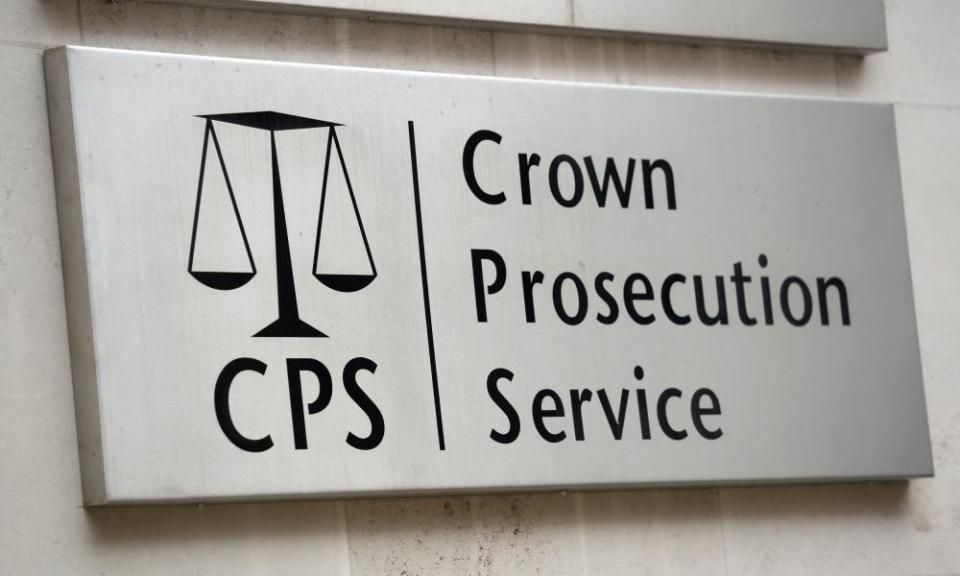Rape ‘scorecards’ reveal CPS will miss prosecution targets

Rape “scorecards” published for the first time reveal that the Crown Prosecution Service will miss performance targets dictated by the government after a collapse in prosecutions for the crime.
The scorecards, seen as a measure to increase transparency and improve the performance of police and prosecutors, show that while the police have made progress in increasing the number of referrals for rape, the number of charges made by the CPS has only risen slightly.
In the spring, government ministers issued an extraordinary mea culpa about the criminal justice system’s failure of rape victims when it published its long-awaited rape review, after the number of alleged rapists being prosecuted fell by 60% in four years to historic lows. It pledged to return the volume of cases prosecuted to 2016-17 levels by the end of this parliament.
The scorecards, published on Thursday, show that police referred 639 cases to the CPS in the first quarter of 2021 and 622 in the second quarter, up from a quarterly average of 461 in 2019 but still some way off the 766 quarterly average of 2016.
The CPS charged 206 people in the first quarter of 2021 and 292 in the second quarter, up from the 2019 quarterly average of 244. In 2016 the quarterly average number of charges was 538.
Andrea Simon, the director of the End Violence Against Women coalition, called the change of pace “unbearably slow”. She said: “The first set of rape scorecards shows that victims of rape will be waiting decades before the number of cases prosecuted reaches the CPS’s own target of returning to prosecution levels from just five years ago.”
The scorecards, which are replicated across the criminal justice system for all crimes, come as the government revealed that prosecutors could be made to meet victims of certain crimes – which is thought to include rape and other serious crimes – before making a charging decision, under new proposals as it launched a consultation on a landmark victims’ law.
Related: Most rape victims in London drop complaints after speaking to police
Other measures proposed in the consultation include a duty on the CPS or police to tell victims about the “right to review” scheme, which allows them to challenge decisions not to charge; new community impact statements to show the “collective impact” of an offence; and increasing automatic victim surcharges paid by offenders to a minimum of £100, which would be put towards victim support services.
Emily Hunt, an independent adviser to the government on victims, said the scorecards and new legislation would provide accountability. “In most organisations there are consequences for repeated failures,” she said. “This ethos should exist across the criminal justice system, but it doesn’t. At the moment victims are not told what to expect and if their rights are ignored, nothing happens – that needs to change.”
The government also confirmed that victims of sexual and modern slavery offences would not have to give evidence in court with the national rollout of a scheme allowing them to give pre-recorded evidence, known as section 28.
The move and consultation was welcomed by the victims’ commissioner, Dame Vera Baird. “We know that we must drastically improve how this country polices and prosecutes rape,” she said. “The national rollout of section 28 will mark a huge leap in the right direction, helping to reduce unnecessary stress and trauma for victims.”
Dominic Raab, the justice secretary, said there was a “moral duty” to do better for victims, and support would bring more criminals to justice. “Our plans will give victims a louder voice, a greater role in the criminal justice system, and make criminals pay more to help victims recover,” he said.

 Yahoo Finance
Yahoo Finance 